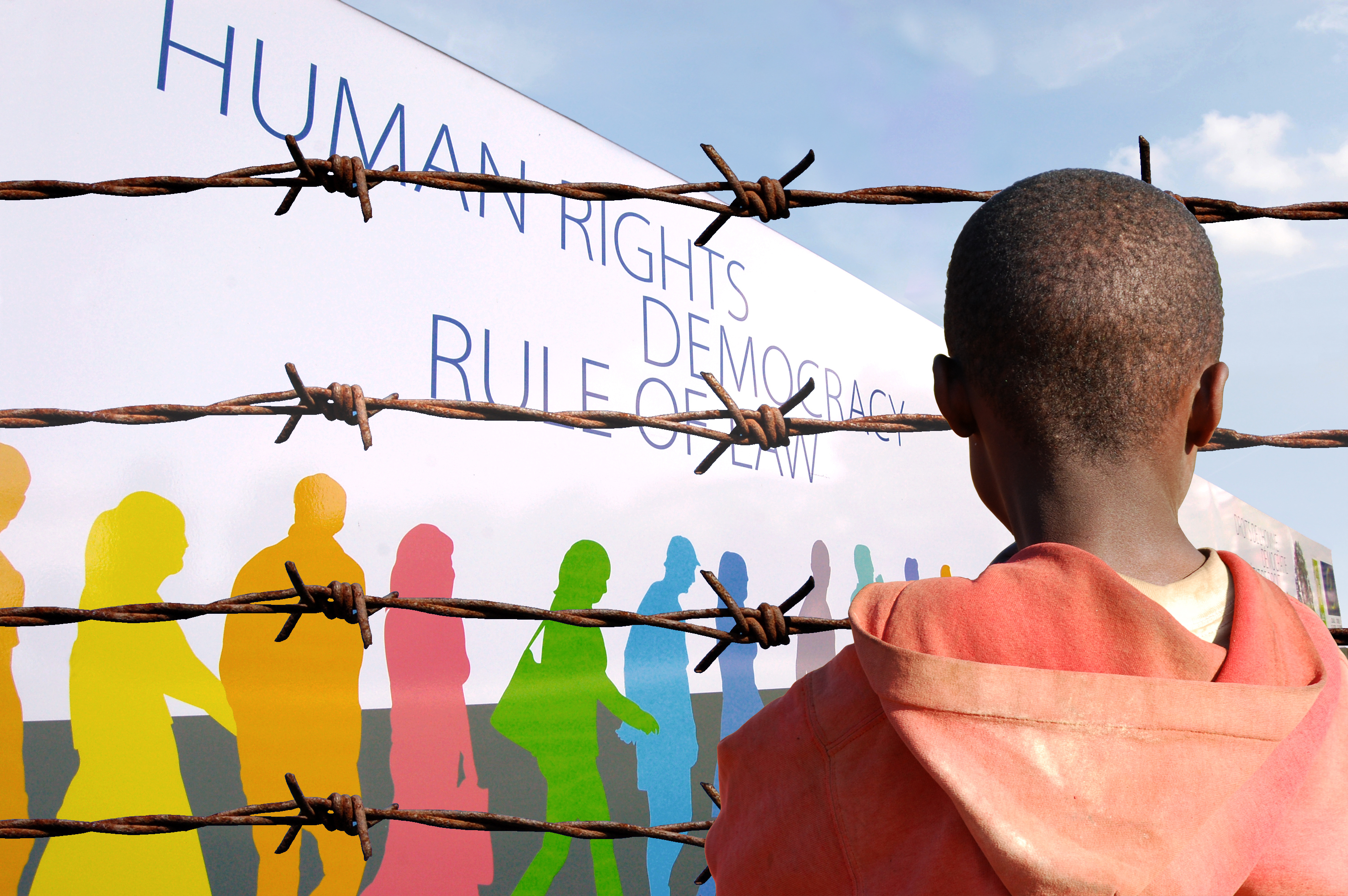Human Rights Day
Addressing Human Rights Challenges in Africa: Perspectives and Solutions

A child in front of a human rights wall painting.
© ShutterstockSeventy-three years ago, five years after the formation of the United Nations in San Francisco, the General Assembly established International Human Rights Day, inviting all member states to celebrate. This day was meant to honour the UN General Assembly’s proclamation of the Universal Declaration of Human Rights on December 10, 1948.
Despite global commemorations, numerous African countries grapple with daunting challenges like fraudulent elections, wars, and coups, suggesting a descent into chaos across the continent. For instance, South Sudan continues to face sporadic violence despite efforts to implement peace agreements, as reported by the UNHCR.
Amid the annual observance of International Human Rights Day on December 10th, concerns about safety heighten amongst South Sudanese and extend to other African nations like Zimbabwe, implicated in human rights violations, indicating broader issues across the continent.
Yet, amidst these challenges, there's a glimmer of hope echoed by African academics like Dr. Hebert Moyo from the University of South Africa (UNISA), advocating conscientious engagement through community-based campaigns and adherence to African countries’ supreme laws. "There is a need to conscientiously engage in community-based campaigns and follow the African countries’ supreme laws," says Moyo.
As the world marks International Human Rights Day, grave concerns arise about continuous violations of fundamental human rights due to ongoing global struggles with wars, coups, and election irregularities. In conflict zones like the eastern Democratic Republic of Congo (DRC) and South Sudan, human rights violations are escalating, resulting in significant civilian casualties and attacks by armed groups.
Rashweat Mukundu, Africa advisor at the International Media Support (IMS), underscores that addressing Africa's challenges demands governments' adherence to constitutional principles, refraining from abusing state institutions to persecute political opponents. "The Zanu-PF-led government must adhere to the dictates of the constitution and stop abusing state institutions such as police and the judiciary to persecute political opponents," emphasises Mukundu.
There should be sustained advocacy and monitoring of the criminal justice system to ensure adherence to human rights practices. Human rights organisations must be allowed to work freely criticising the state and its institutions
In Kenya, violent anti-government protests this year led to nationwide disruptions, with casualties and hospitalisations. Kakai Kissinger, a human rights attorney, stresses the necessity of sustained advocacy and monitoring of the criminal justice system to uphold human rights practices. "There should be sustained advocacy and monitoring of the criminal justice system to ensure adherence to human rights practices. Human rights organisations must be allowed to work freely criticising the state and its institutions," he emphasises.
Malawi encountered its own challenges, including the passing of the NGO Amendment Bill and arrests related to social media protests. However, political analysts like Gift Sambo advocate for prioritising poverty alleviation in low-income countries as a foundational step towards establishing human rights. "Low-income countries should emphasise poverty alleviation as the first step towards entrenching human rights. The hungry, the sick, and the illiterate cannot be good candidates for human rights discourse," notes Sambo.
Nigeria, facing Boko Haram insurgencies, grapples with ongoing human rights abuses. Tersoo Onande, a Nigerian human rights defender, suggests conditionalities on aid or loans, arguing that governments failing to protect citizens should not access aid unless human rights are upheld. "A government unable to protect its citizens' lives and property should not access aid or loans without ensuring such rights will be upheld," insists Onande.
Amidst ongoing terrorist attacks, abductions, and killings in Mozambique's Cabo Delgado Province, Josue Tambara, a Mozambican human rights activist, proposes the establishment of multi-sectoral justice commissions and community paralegal training to bring justice services closer to citizens. "Institutions providing Justice services should create multi-sectoral justice commissions and train paralegals from communities to bring justice services closer to citizens," emphasises Tambara.
Voices across these African nations advocate for human rights adherence, constitutional governance, and poverty alleviation, illuminating both the challenges and potential pathways amid escalating crises.
